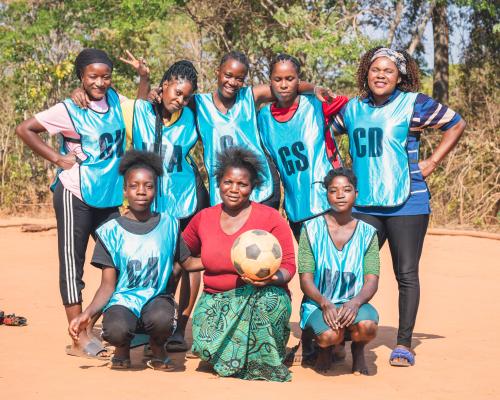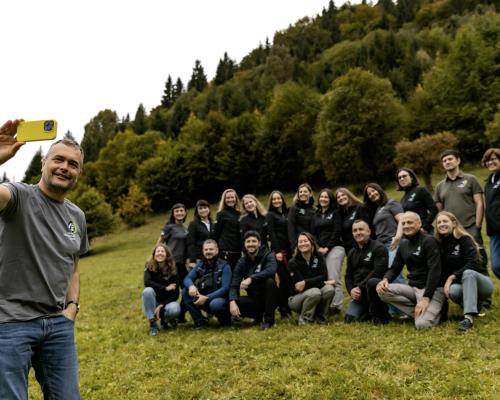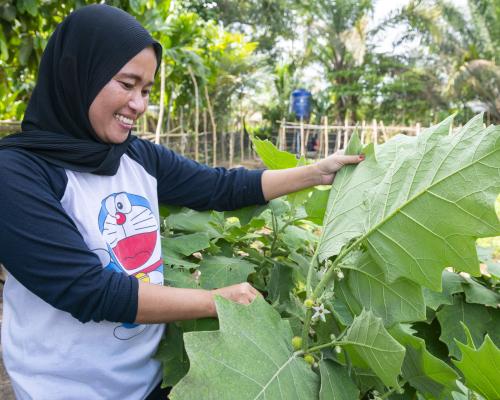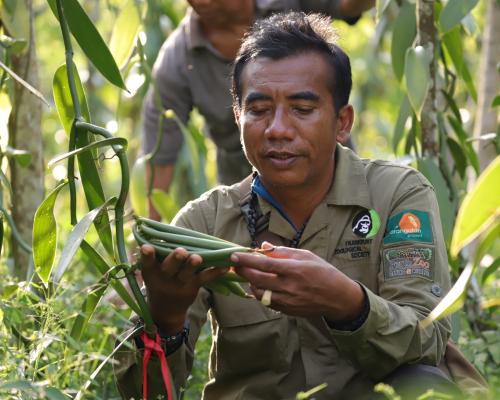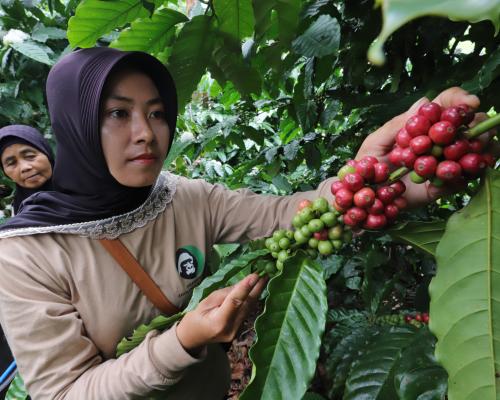The coronavirus pandemic has changed the way we run our Jungle School. But creative solutions have allowed our orangutans to continue learning while staying healthy.
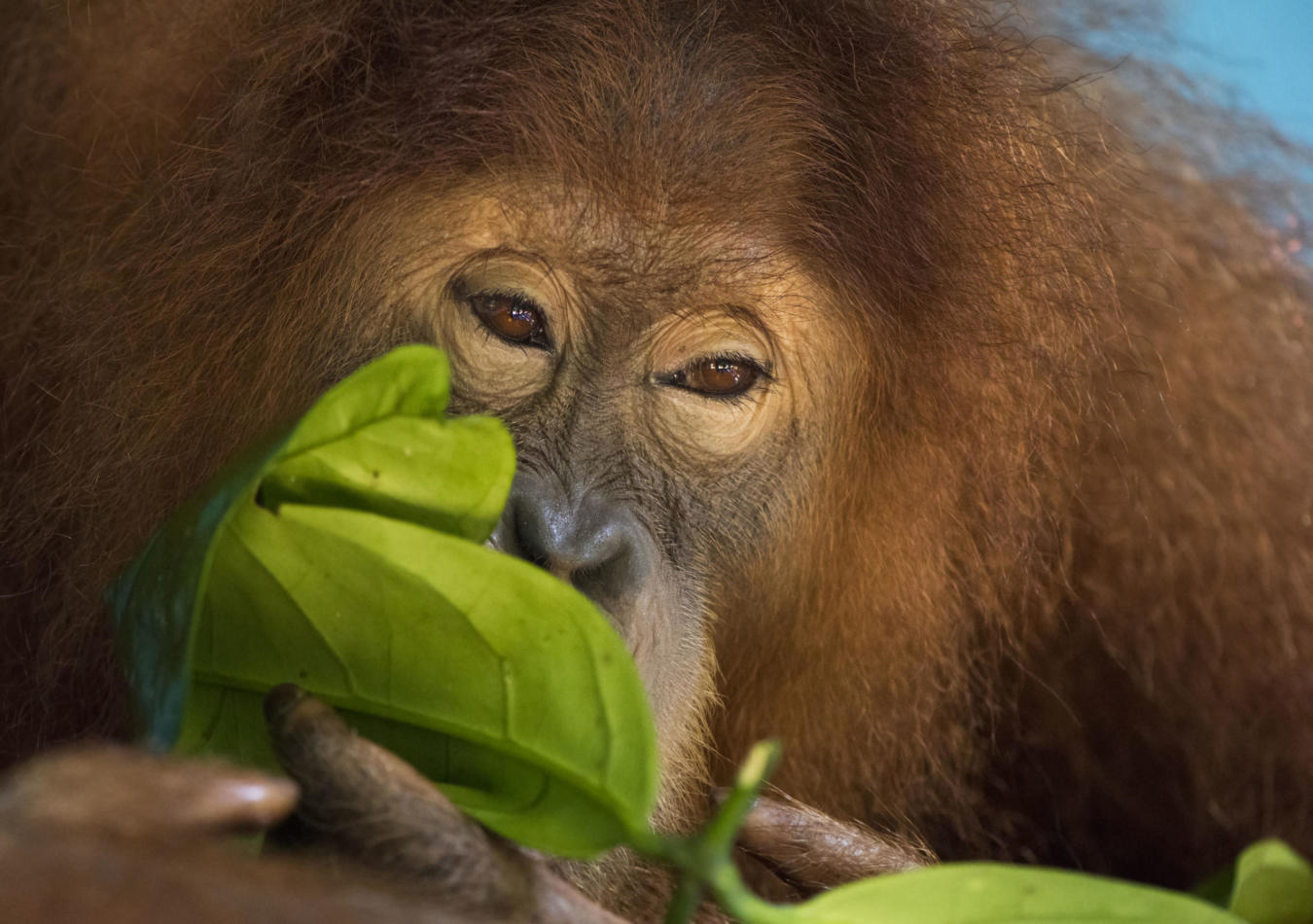
Protecting rescued orangutans from COVID-19
We don’t know if orangutans can contract COVID-19 from humans. But because of their genetic closeness to us, and the fact that other respiratory diseases, such as tuberculosis, can transfer from humans to orangutans, we don’t want to take any risks. This means we need to be extra careful when working with these animals during the coronavirus pandemic.
To protect the orangutans we have put a few additional safety protocols in place at our Sumatran office. Since the start of the pandemic we have been limiting interactions between staff members, and have restricted our handling of the orangutans to a minimum. Unfortunately, to further ensure the animals don’t get infected, we must keep them in a cage, and as such it is impossible to run normal Jungle School activities. This is a challenge because although humans understand why lockdown is important, it is not possible to explain this concept to primates.
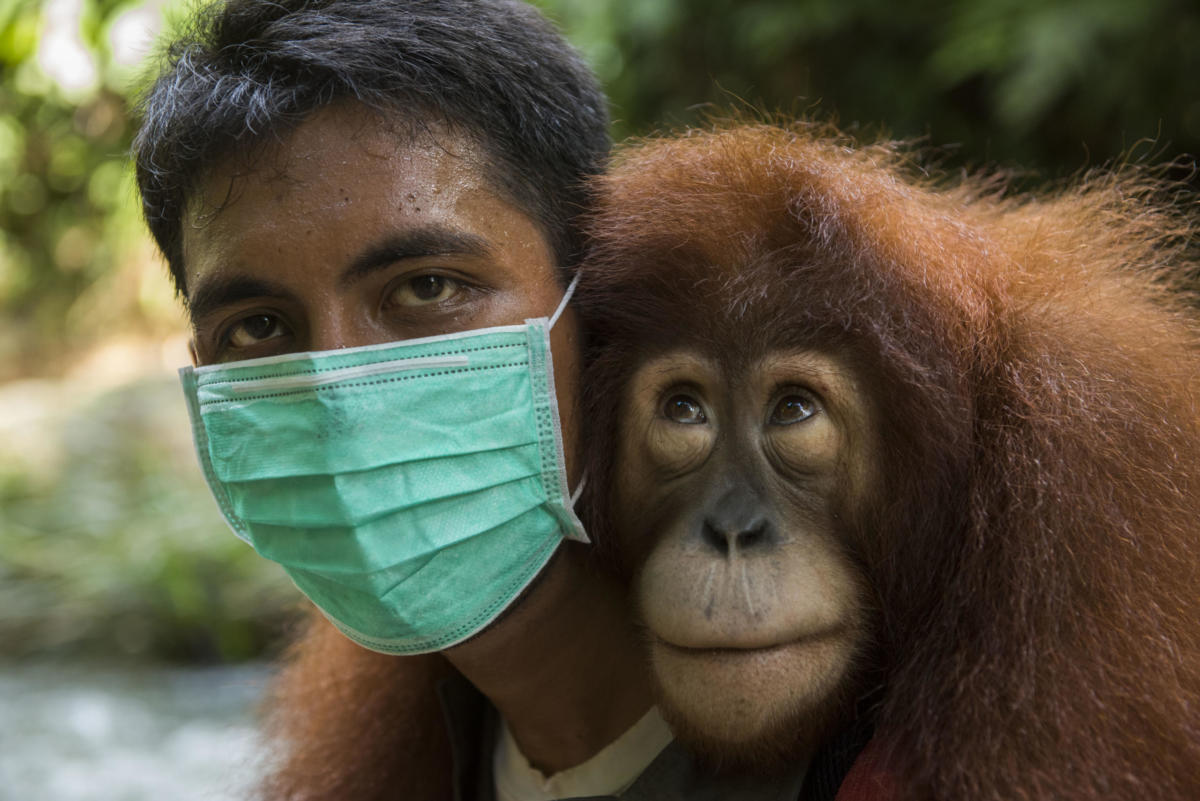
Despite the challenges, we strive to make their lockdown as pleasant and educational as possible, so that they continue learning critical skills needed for their future survival in the wild. For example, they need to learn how to forage for food, build a nest, and climb trees as quickly as orangutans in the wild. These are lessons that their mothers would normally teach them, but since the orangutans at our facility were either kept as domestic pets or are orphans, they don’t always have these skills. So it’s up to us to teach them. However, without being able to take them outside, something we would normally do with the Jungle School, we have had to implement a few creative solutions.
To teach them foraging and nest building skills, we provide the orangutans with food taken from the forest such as: fruits, rattan stem and termites. We also give them leaves and branches to use as bedding material. To make sure they learn how to use each item appropriately trainers provide demonstrations in front of the enclosures.
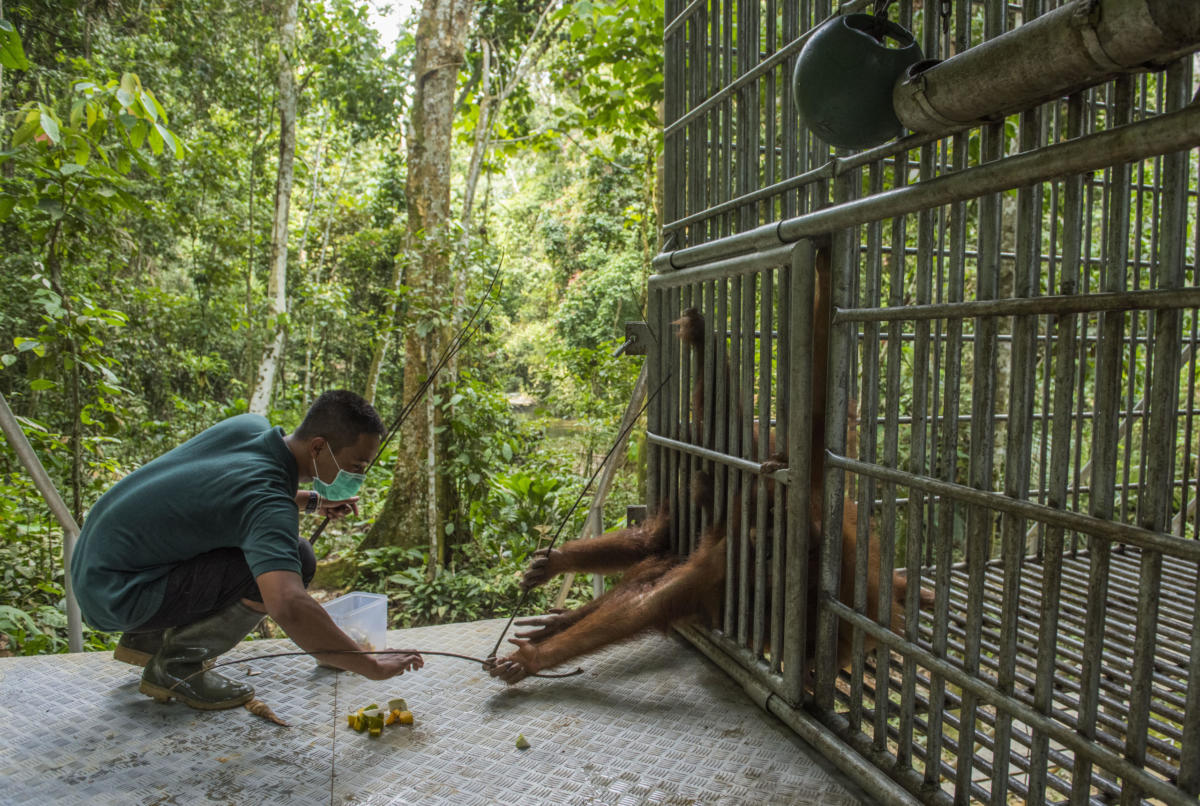
However, it’s not just work. Trainers also create puzzles to keep the orangutans entertained and make sure their cognitive skills stay sharp. For example: the animals are given tools to complete an activity and containers with treats inside of them that can only be opened when a series of steps is followed.
Although we don’t know what will happen in the next few months regarding the pandemic, I am happy to report that the creative solutions mentioned above are working. The orangutans are completing their assignments well and are forging bonds with one another. Hopefully the animals will soon be able to go back to their normal routine, but until then at least the rescued orangutans taking part in the FZS Jungle School are safe, healthy and progressing on their journey to being released into the wild.
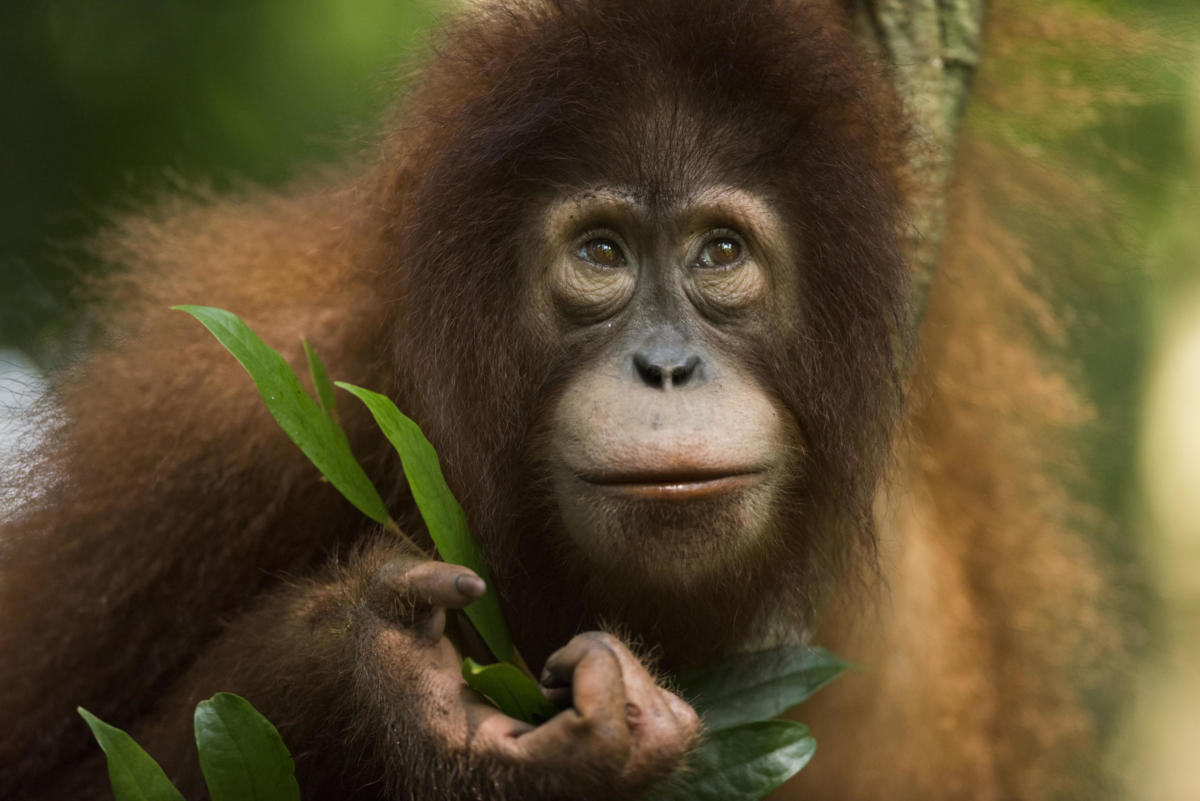
Donations are urgently needed right now for the Jungle School in Bukit Tigapuluh as some of the funds previously allocated for the Jungle School have been used to buy disinfectants and protective masks. Every Euro counts. With your donation, we can continue our operations in Sumatra.
About the Jungle School: The Frankfurt Zoological Society operates a jungle school for orangutans in Bukit Tigapuluh National park in Sumatra. Many of the orangutans participating in the School had been kept illegaly as pets and therefore have never been taught the skills necessary to survive in the wild (for example: how to climb trees, build a nest to sleep in, what to eat and the best way to extract termites from their nests) . Since the inception of the Jungle School 18 years ago, more than 170 individuals have been successfully released, building the foundation of a healthy orangutan population in Bukit Tigapuluh National park. This program is the first scientifically documented resettlement program for orangutans and the most successful of its type.






